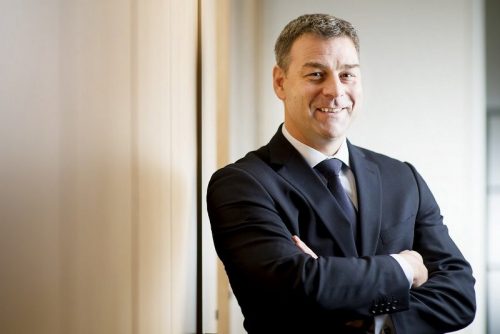Carillion directors branded ‘delusional’ over company’s collapse

MPs have branded Carillion’s directors as delusional over their handling of the construction firm’s collapse.
Executives including former chief executive Richard Howson, his interim successor Keith Cochrane and non-executive chairman Philip Green were grilled by members of the joint Business, Energy and Industrial Strategy and Work and Pensions Committee yesterday.
The four-hour hearing was an uncomfortable session for the executives as they were made to account for their actions in the run-up to the firm’s collapse last month and to try and justify the remuneration packages they had received while the company crumbled around them.
All of the firm’s directors had expressed their sorrow over what happened but the show of contrition failed to impress their inquisitors.
Mr Green said he accepted responsibility for what happened and offered his apologies to workers, pension trustees and sub-contractors within the company’s supply chain.
So far, hundreds of former employees at the Wolverhampton business have lost their jobs and more are expected to follow.
Commenting on the evidence heard in Parliament, Frank Field and Rachel Reeves, co-chairs of the joint committee, said: “This morning a series of delusional characters maintained that everything was hunky dory until it all went suddenly and unforeseeably wrong.
“We heard variously that this was the fault of the Bank of England, the foreign exchange markets, advisers, Brexit, the snap election, investors, suppliers, the construction industry, the business culture of the Middle East and professional designers of concrete beams.
“Everything we have seen points the fingers in another direction – to the people who built a giant company on sand in a desperate dash for cash.”
As part of the inquiry into the collapse, the committees published Carillion’s final business plan which it was hoped would see the restructuring which would ensure the firm’s survival.
The document sets out the management’s take on what was wrong with how the company had operated.
It showed that Mr Green was set to continue his tenure as chairmanship regardless of what had gone before.
However, the MPs said the picture painted by amongst others, Mr Howson and Mr Green, was at odds with the business plan’s description of the problems at the company.
BEIS committee member Antoinette Sandbach said: “The group had become too complex with an overly short term focus, weak operational risk management and too many distractions outside of (its) core.”
The recovery plan was also criticised for making scant mention of the group’s pension schemes, which are now estimated to carry a £990m deficit.
The company had hoped to get clearance from the Pensions Regulator for the various schemes to be decoupled and moved into a Pension Protection Fund via a Regulatory Apportionment Arrangement (RAA). An arrangement like this is only possible if insolvency is otherwise inevitable within 12 months.
From the RAA proposal, there was a calculated combined s75 – full buyout value – pension deficit of £2.34bn at the end of 2017. That is to be set against an expected return, at that stage, to the pension schemes on insolvency of just £11.4m.
Upon the compulsory liquidation of the company on January 15 2018, the pension schemes automatically transferred into the PPF.
The MPs said it appeared the company intended to keep a ‘red flag’ Early Payment Facility going, and at the same high levels, until at least 2022 – despite a promise by Mr Cochrane and former Finance Director Zafar Khan that it would be reviewed.









